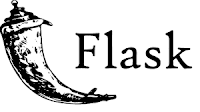Adequate quantity and timing of feeding the infant with formula milk
formula feeding:
After the first few days:
Your formula-fed newborn will take 2 to 3 ounces (60 to 90 mL) of formula each time you feed him and will eat every 3 to 4 hours on average for his first few weeks. (Breastfed babies tend to feed more often and in smaller amounts than formula-fed babies.)
During the first week:
if your baby sleeps more than 4-5 hours and starts skipping meals, wake him up and offer him a bottle.
At the end of the first month:
she will be taking in at least 4 ounces (120 mL) at a time, with a fairly predictable feeding schedule of every 4 hours or so.
At 6 months:
your baby will consume 6 to 8 ounces (180 to 240 mL) each time she feeds, 4 to 5 times in 24 hours.
On average, your baby should take about 2½ ounces (75 mL) of formula per day for every pound (453 g) of body weight. But you'll probably regulate your intake on a day-to-day basis to meet your own specific needs.
Instead of sticking to set amounts, let him communicate when he's had enough to eat. If he gets restless or easily distracted while eating, he's probably full. If he empties the bottle and continues to smack his lips, he may still be hungry.
Children feeling satisfied:
However, there are maximum and minimum limits. Most babies are satisfied with 3 to 4 ounces (90 to 120 mL) at each feeding for the first month, increasing to 1 more ounce (30 mL) per month until they reach a maximum of 7 to 8 ounces (210 to 240 mL).
If your baby seems to consistently want more or less than these amounts, discuss this with your pediatrician. The baby should not drink more than 32 ounces (960 mL) of formula in a 24-hour period. Some babies may have an increased need to suck and simply want to suck on a pacifier after feeding.
feed your baby with formula on demand:
In principle, the ideal is to feed your baby with formula on demand or whenever she cries because she is hungry. As time passes, he will begin to establish a fairly regular schedule of his own. As you become familiar with her signals and needs, she will be able to schedule her feeding according to her routine.
Between 2 and 4 months of age (or when the baby weighs more than 12 pounds [5.4 kg]), most formula-fed babies will stop needing a bottle in the middle of the night, because they are consuming more during the day and their sleep patterns have become more regular (although this varies considerably from baby to baby).
Distract the child's attention with toys or a pacifier:
In addition, their stomach capacity has increased, which means they are likely to go longer without food between bottles throughout the day, occasionally up to 4-5 hours at a time. If your baby still seems to feed too often or consume large amounts, try distracting him with play or a pacifier. Sometimes patterns of obesity begin during early childhood, so it's important not to overfeed your baby.
The most important thing to remember, whether you breastfeed or bottle feed, is that your baby's feeding needs are unique. No book, or even website, can tell you exactly how much or how often your baby needs to eat or how to manage feedings. You will discover these things for yourself as you get to know each other.







%20tube%20has%20stopped%20draining..%20Notify%20the%20physician.jpg)
